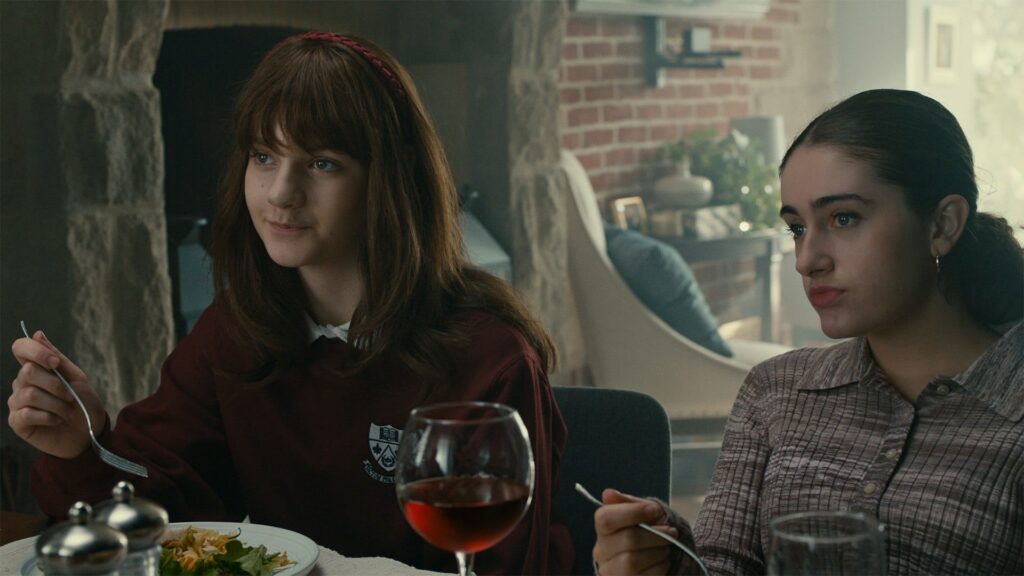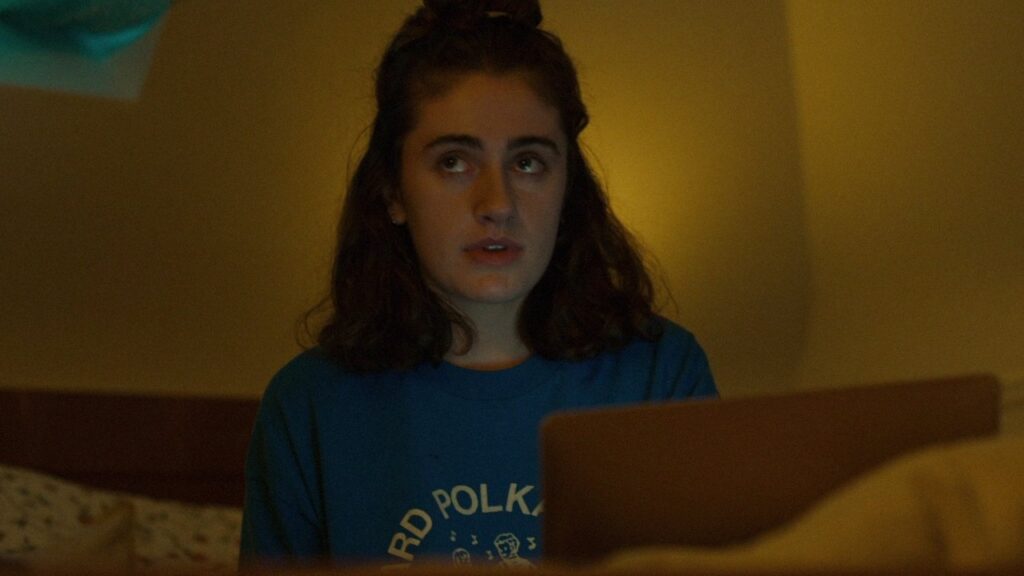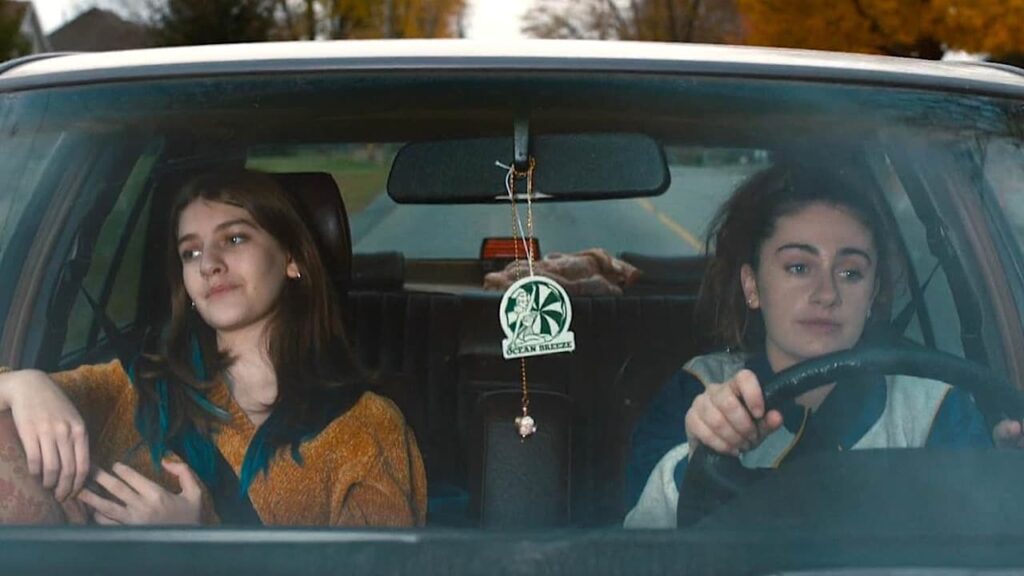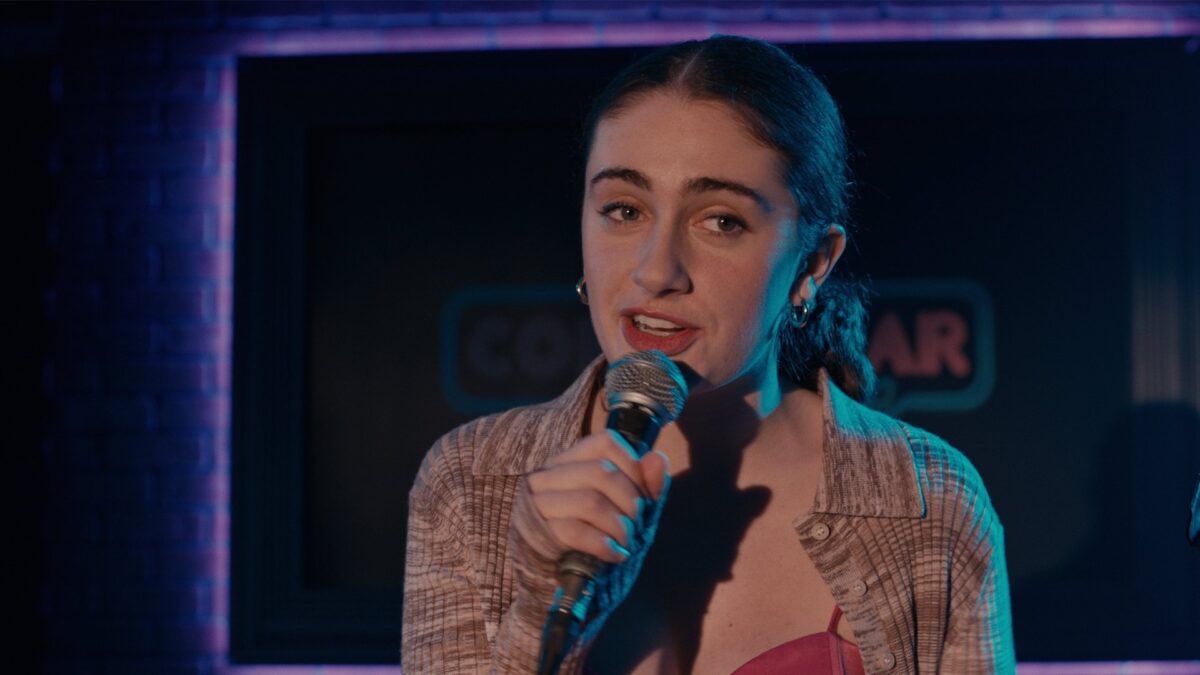Funny how? Funny like I'm a clown? I amuse you?
SXSW has, over the last decade, attracted a very specific kind of film: the heartfelt dramedy from a “fresh voice,” an archetype that used to belong to Sundance. I’m a big sucker for these kinds of movies, but they definitely have some tropes: Uncomfortable jokes double as character development, depressed or hazy protagonists confront the scary modern world, emotional labor squeezed through the cracks of half-formed gags. The upside is new directors with hunger to get their voice on screen; the downside is that those voices sometimes take themselves a little too seriously. Most of these films come from creators with backgrounds in acting or writing, or else from the functional but unremarkable world of TV direction. I’m not sure I’ve ever seen a film that fits more squarely in the SXSW directorial debut stereotype than I Used to Be Funny, the first film by Canadian writer-director Ally Pankiw.
I Used to Be Funny nearly gets to the finish line on the strength of the lead performance from Rachel Sennott as protagonist Sam, a comedian (“comedienne”) in a personal and career rut. Sennott, known for her slightly aggravating persona deployed in comedies like Bodies Bodies Bodies and Bottoms, is actually better at the dramatic material here than the comic material, which tracks with the movie’s general struggle to modulate between funny and despairing.
Pankiw’s script, to its credit, has some genuine insight about parasocial relationships turning toxic, and the way a creative/online persona collides with your real life in ways that reduce both. But the writing fumbles nearly everything else.
The big problem is the story structure, the screenplay is much too herky-jerk. Every five or ten minutes we hop to another point in a timeline spanning about two years. The constant time-travel undercuts the sensation the movie is theoretically after — Sam’s deadened, stuck-in-amber void of depression, her humanity stripped down with one defeat after another until she doesn’t have much left. Instead, it treats its story less like a character portrait and more like a puzzle-box, which is doubly ineffective because its revelations are all strongly suggested from the first few scenes.

The present-tense plot follows teenage Brooke (Olga Petsa) going missing as Sam spirals from some horrific experience not specified but indicated to have something to do with Brooke’s dad, Cameron (Jason Jones), and thus not too hard to guess. Flashbacks start with Sam getting hired as Brooke’s au pair while Brooke’s mom battles cancer. We also meet Sam’s roommates Paige (Sabrina Jalees) and Philip (Caleb Hearon), her ex-boyfriend Noah (Ennis Esmer), and a couple of acquaintances from Sam’s regular comedy club. Every scene introduces the relevant characters, places us in the timeline, and rushes us through a few revelations. Then, before anyone can breathe, we’re on to the next time jump forwards or backwards. Too often it feels like a speed run to get through all of Pankiw’s story ideas rather than a patient sketch of the characters.
None of the relationships ever end up feeling authentic or lived in. The closest we get is the connection between Sam and Brooke, with the au pair serving as a surrogate older sister when Brooke is loneliest and saddest. And yet their scenes still feel rushed and choked out, when they’re really the heart of the story — much more than Sam’s floundering comedy career or her trauma recovery. Honestly, doubling the number of scenes between the pair would’ve gone a long way in letting I Used to be Funny breathe. This becomes especially apparent in the final confrontation between the two, which is begging for more dramatic heft of accumulated chemistry between the two. (Also, Brooke looks about 20 while she’s supposed to be 12–14, but that’s just par for the course for teen movie characters. I’m getting nitpicky.)
One problem that has plagued every movie ever made about comedians, and which I Used to Be Funny definitely does not solve: Stand-up comedy is almost never funny in movies. There are a bunch of reasons why. Stand-up writing is not the same as film writing; the relaxed vibe of a good comedian doesn’t play well with cinematic storytelling; and the flow and delivery of a whole stand-up performance is tough to capture in micro. Sam’s onstage material is really unconvincing, and her whole deal is that she’s supposed to be a rising talent. So, you have to do the mental work of filling in the blanks and using your imagination for this movie’s title to even be true. (It’s worth noting, though, that I Used to Be Funny is in the lineage of Funny People and Punchline for showing comedians being remarkably sad humans; heck, you can probably tie it back to tragic clown movies like La Strada.)

Pankiw’s tendency to overcook the narrative structure hits its biggest stumble in the closing minutes. We finally kick off the climax with the supposedly big reveal of an act of sexual abuse that was already obvious, so it plays less like a well-structured gut punch and more like a teeth-grit “let’s get this over with.” Maybe if it had arrived closer to the midpoint, it wouldn’t feel like an unnecessary bit of emotional manipulation. (See: Sorry, Baby for much savvier handling of about 80% of what this movie is aiming for.)
My other sticking point with the ending is the bow-tying. After so much therapy-talk about emptiness and trauma requiring an uneven and unknowable path to recovery and peace, the last couple scenes click into a healing montage that’s too clean. I get that movies require resolution, but when depicting psychological healing, restraint is usually the way to go. I’m not asking for a wallow, but an unearned happy ending is maybe worse.
Pankiw’s direction is not exactly inspiring either. This isn’t a genre of movie that asks for anything cinematically daring, but I still find the direction to be a little bit low-energy and clumsy. Some of that may be intentional, a boxed in look reflecting Sam’s emotional state, but Occam’s razor suggests undisciplined craft stuffed with plenty of visual cliches: Would you believe that Sam slowly slumps in a bathtub in the first ten minutes of this movie to depict her depression? Feeling bold today, Pankiw?

What does work reliably is Sennott’s performance, plus a handful of supporting roles. Sennott perfectly captures the crumpled feeling of someone who has become a dimmed light; exasperated but not showy. Jalees and Hearon nail the energy of wonderful and supporting friends starting to lose their patience, sneaking in jokes better than anywhere else in the script. (Casting directors: please put Hearon’s agent at the front of your Rolodex when filling out supporting casts in your comedies; he’s two for two with this and Sweethearts.) I was also surprised to see Esmer, whom I know from my pet favorite Amazon streaming show Red Oaks, which I have found multiple reasons to reference in the past year.
So even with a lot here that crumbles under it’s own weight, I still almost like I Used to be Funny. In a film like this, a strong lead performance almost gets you to a passing grade by itself. I’d love to see Sennott in material that’s bolder and less silly than her typical TikTok-adjacent persona (though I still need to catch up with Shiva Baby, where I hear she’s good). And the central consideration of a young creator’s personal and creative life falling apart as cruelties break down the barrier between them, buried beneath the narrative exertion, is thoughtful and layered. But I Used to Be Funny keeps stumbling over itself; here’s hoping Pankiw’s next move is more assured.
Is It Good?
Nearly Good (4/8)
Dan is the founder and head critic of The Goods. Follow Dan on Letterboxd. Join the Discord for updates and discussion.

